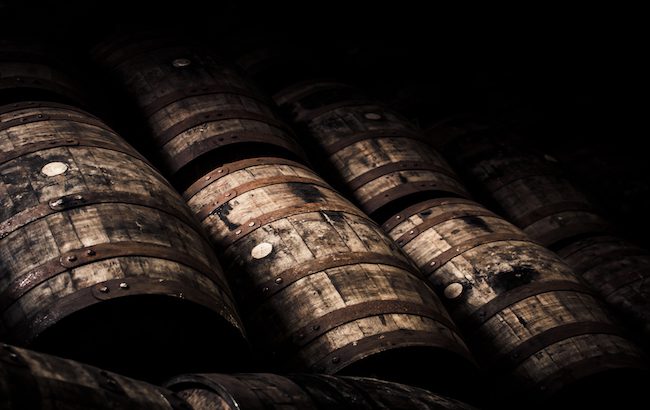Supply chain braces as tariff delay nears end
Members representing the barrel, glass and cork industries explained how increased tariffs could impact their sectors.

While tariffs have faded from the public discourse, delays imposed by US president Donald Trump in April that set all countries at a baseline 10% are set to expire on 9 July 2025, leaving stakeholders in the spirits industry vulnerable to increased costs and additional disruption.
During a webinar held by the Distilled Spirits Council of the US (Discus) on 25 June, leaders from barrel, glass, and cork bodies offered insights into how tariffs could potentially impact their respective industries, and what measures are being taken with more uncertainty around the corner.
“Cooperages thrive on predictability, so when tariffs disrupt the global movement of barrels or finished spirits, planning becomes a guessing game,” Melissa Zoeller, executive director of the Associated Cooperage Industries of America, said, noting that increases in steel have impacted costs, with steel representing roughly 4% of total barrel pricing.
“In some instances, our members will potentially have to adjust their production timelines and inventories to hedge against delays or demand swings,” she added. “But right now, with everything being locked in, there hasn’t been a major disruption as of yet. That doesn’t mean there won’t be.”
Zoeller also noted that some producers are choosing to repair existing barrels rather than spend on new or used ones, and that the US barrel industry would risk losing some of its market share to alternative resources and regions should retaliatory tariffs make American oak or used Bourbon barrels prohibitively expensive.
“Just the mere threat of tariffs create uncertainty,” she said. “We’ve seen some buyers diversify their supply chain as a hedge. Others leaned into longer-term contracts to lock in pricing and availability. Just trying to mitigate unpredictability more than anything.”
Glass and cork
The glass industry is still reeling from pandemic-era supply chain congestion that left some spirits producers scrambling for imported bottles as long lines at the ports left product stranded on ships. Bryan Vickers, consultant to the Glass Packaging Institute, said those issues reinforce the importance of domestic glass container plants and their regional supply capabilites.
“There are newer glass plants in Georgia and Kentucky, and others in Mexico helping to support the US spirits industry with bottle demand,” Vickers said. “A nice mix of strong domestic capability with fair trade is really important to us. And having broad-based tariffs that punish our customers are not helpful, and they’re not helpful for us. We’re thinking particularly of the EU 10% tariff as being a challenge.”
Vickers did note, however, that heavy tariffs on China would keep the country from undercutting the market.
Patrick Spencer, executive director for the Natural Cork Council, describes cork as an on-demand or on-time delivery system where production can’t be paused with trees harvested as soon as they reach maturity. The main issue for the cork industry is getting on an exemption list that failed to recognise it as a wood product, despite it being classified as such by the US Department of Agriculture.
“It was basically an oversight that cork didn’t get put on the exemption list,” Spencer said. “We feel like we will get on that list.”
Thousands of signatures
With that 9 July date quickly approaching, the Toasts Not Tariffs coalition announced a petition with more than 19,000 signatures urging for a return to zero-for-zero tariffs on spirits and wine.
The coalition is a group of 57 associations representing the entire three-tier chain of the US alcohol and related industries.
“Thousands of consumers and workers throughout the wine and spirits supply chain, from barrel makers to bartenders, are sending a clear message to the administration that we want toasts, not tariffs,” a statement said.
“We need the president’s leadership to secure trade agreements that protect fair and reciprocal zero-for-zero tariffs with the EU and our other key trading partners. This will bolster our great hospitality industry and result in increased exports of US wine and spirits products, and investments and job growth in communities across our country.”
Related news
Dick Bradsell: lessons learned from an industry icon
